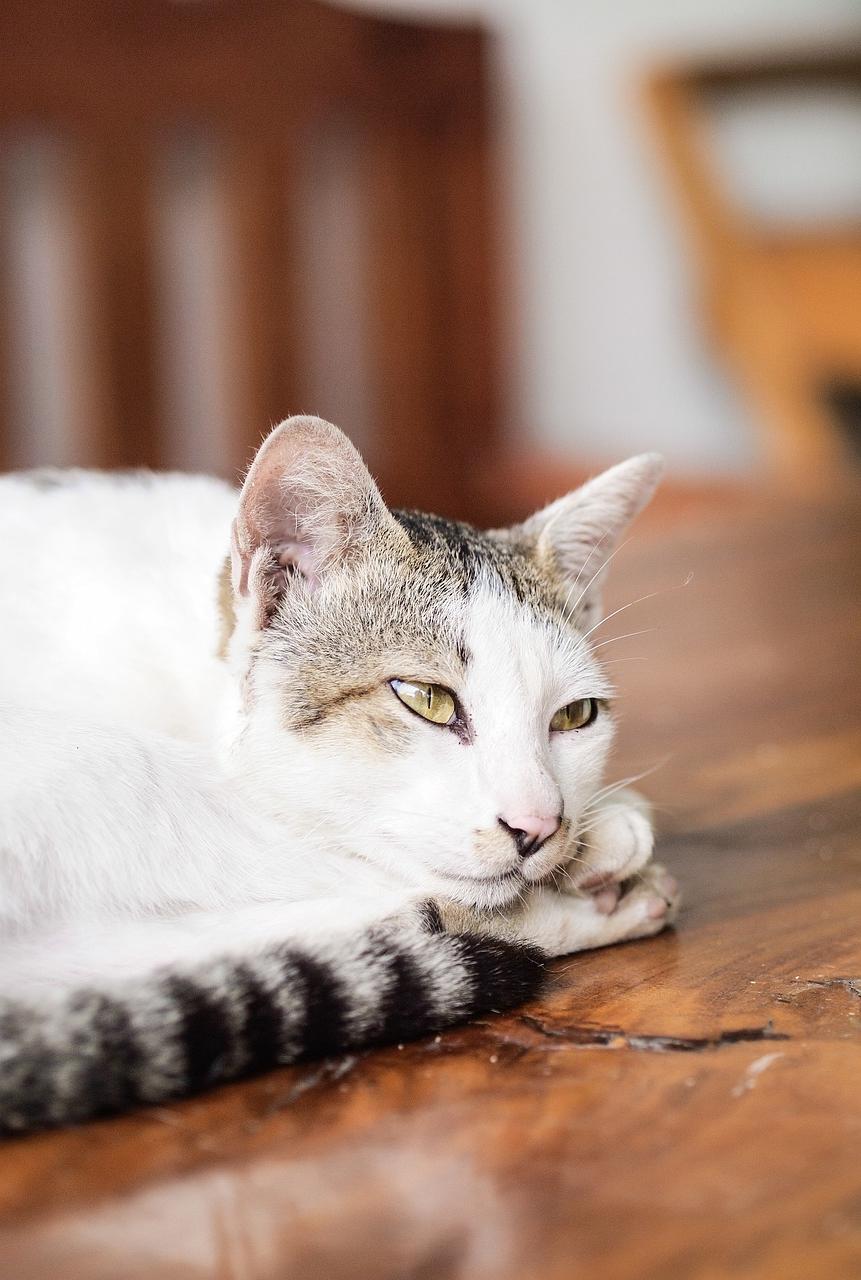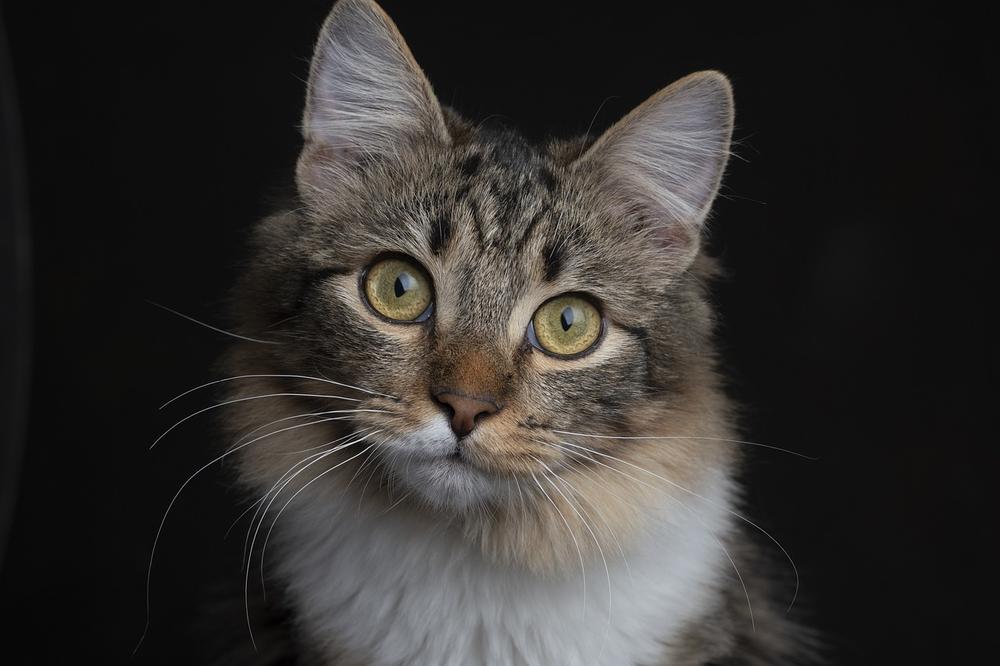Cat Poops on the Floor When Angry? You Are NOT Alone…

Picture this:
You've had a long day, only to discover that your cat has left you a steaming surprise on the floor. 😫
Frustrating, huh?
But what if I told you there's a solution?
Keep reading to uncover the secrets behind your moody kitty's messy behavior.
Does Cat Poop on Floor When Angry?
Here's how to handle your cat pooping on the floor when they're angry:
- Look for any changes in their environment or routine.
- Figure out what makes them mad.
- Adjust their daily schedule if needed.
- Keep things stable and consistent for them.
- Give them plenty of things to keep their mind and body busy.
- Solve the problem of them not being able to reach certain places.
- If necessary, get professional help from a vet or animal behaviorist.
And remember, punishing them won't work.
Instead, focus on rewarding good behavior and redirecting them when needed.
Cats show you how they feel through their actions, so pay attention and meet their needs.

So, take action to address the root causes and make your home a peaceful place for your furry buddy. 😺
Now, you might be wondering...
What are some other possible reasons behind this behavior and how can I address them?
Well, let's dive into the next section to explore the potential underlying medical issues that could contribute to your cat pooping on the floor...
Identifying Potential Health Issues
When your cat starts pooping outside the litter box, you need to think about possible health problems.
Here are five medical reasons you should know:
- If they have a urinary tract infection, it can make them uncomfortable and cause them to eliminate in the wrong place.
- Gastrointestinal issues like constipation or inflammatory bowel disease could be making them have accidents.
- Parasites such as worms might mess with their digestive system and make them poop where they shouldn't.
- Certain foods can give cats tummy troubles and lead to accidents.
- Just like us, cats can experience stress and anxiety, and that could make them avoid the litter box.
If your cat keeps pooping outside the litter box, talk to a vet so they can figure out what's going on and give proper treatment.

Getting professional advice will help you fix the root cause without putting your cat's health at risk.
But what if your cat's health isn't the issue?
Keep reading to discover how to decode your cat's behavior!
Understanding Stress and Behavior in Newly Adopted Cats
When you bring home a new cat, they might struggle with stress and act out in ways that are hard to manage. To help you navigate this, here are some tips:
- Just be patient—you can't rush a cat's adjustment to a new environment. Give them the space they need and let things progress naturally.
- Pay attention to their body language, as cats communicate through it. Look for signs of stress or anxiety like flattened ears, dilated pupils, or tense postures.
- Make sure your cat has hiding spots where they can feel secure during stressful times—think cat trees or blankets draped over furniture.
- Use positive reinforcement to reinforce good behavior. Give them treats or praise when they behave well, so they associate positivity with those actions.
- Take your time introducing new pets to your cat. Gradually introduce them and closely monitor their interactions. If conflicts persist, you may need to separate them temporarily.
- Establish a routine for feeding, playtime, and waking hours. Consistency helps reduce stress by providing predictability and stability.
- Don't hesitate to seek professional help if needed. A certified applied animal behaviorist can offer guidance tailored to your cat's specific needs.
Understanding your cat's behavior is crucial for building a happy and harmonious relationship with them.

If you've noticed your newly adopted cat exhibiting unusual behavior, such as running out of the litter box while pooping, I can help shed some light on the situation.
Understanding the stress and behavior of our feline friends is key to building a harmonious relationship.
So, if you are feeling frustrated or concerned about this issue, I encourage you to check out my article Cat Runs Out of the Litter Box While Pooping for further insights.
How to Stop a Cat From Pooping on the Floor

- Make sure your cat can easily access the litter box whenever they need to go. Don't hide it away in some hard-to-reach spot.
- Keep that litter box nice and clean. Cats are picky and won't use a dirty one. Scoop out the waste every day and change the litter regularly.
- Find a calm spot for the litter box, one where your cat can have some peace and quiet while doing their business. No noisy appliances or too much foot traffic nearby.
- If your cat's nervous about using the litter box, take it slow. Introduce any new stuff gradually so they can get used to it and feel comfortable.
- Give your cat a little treat or some praise every time they do their thing in the litter box. Positive reinforcement goes a long way in getting them to keep using it.
- Keep your cat entertained and engaged. Boredom can lead to them doing their business outside the box. Play with them, use interactive toys, and keep their minds sharp.
Ensuring a clean litter box and creating a caring atmosphere for your beloved pet will reduce incidents and ensure their well-being and contentment.
Do Cats Revenge Poop?
Revenge pooping is not how cats express anger or spite, but rather an instinctive behavior within the feline kingdom. Cats have different ways of communication, and revenge pooping is not one.
Cats mark their territory using scent, scratching, or urinating, but revenge pooping does not fall into their natural behaviors.
Sometimes, when a cat poops outside their litter box, it could be due to health issues, stress, or dislike of the litter box's location or cleanliness.
Understanding your cat's needs and providing a safe and clean environment can prevent such instances.
Ending Thoughts on Cat Pooping Behavior
Key Takeaways:
- Cats may poop on the floor when they are angry due to changes in routine or environment.
- Pooping outside the litter box can indicate various medical causes and should not be dismissed as a behavioral issue.
- Regular grooming and interactive play can promote a healthy lifestyle for cats, reducing the likelihood of serious health conditions.
- Understanding cat body language and cues can help identify signs of stress or anger.
- Maintaining a consistently clean litter box environment is crucial to prevent accidents outside of the box.
- Creating a secure and loving environment for the cat can prevent anger-related pooping incidents.
- Behavior modification should focus on gradual desensitization and positive reinforcement, avoiding punishments or scolding.
- Regular playtime and mental stimulation should be incorporated into the cat's routine to reduce stress-induced behaviors.
- Cats do not engage in revenge pooping, it is a natural instinct.
- Consulting with a veterinarian is essential for ruling out any underlying medical issues and making critical health decisions for cats.
And that wraps up today's article.
If you wish to read more of my useful articles, I recommend you check out some of these: Pregnant Cat Pooping Everywhere, Why My Cat Humps Me, Do Cats Eat Their Own Poop, Why Does My Cat Sit in the Bathtub, and Should I Adopt a Declawed Cat
Talk soon,
-Sarah Davis